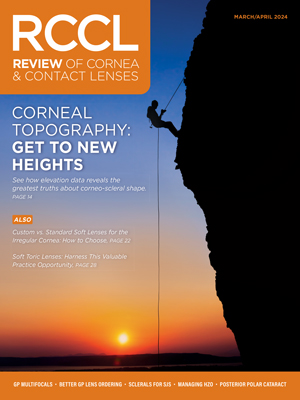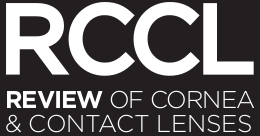 A patient comes in complaining of several symptoms including itchy and watery eyes. The practitioner easily diagnoses the problem as an allergy and tells the patient not to be concerned, that it isn’t a big deal and that the drops he is offering will take care of the issue. When the patient asks whether there is an associated charge for the treatment, the practitioner dismisses the question reiterating that the issue is no big deal and the drops will take care of the symptoms.
A patient comes in complaining of several symptoms including itchy and watery eyes. The practitioner easily diagnoses the problem as an allergy and tells the patient not to be concerned, that it isn’t a big deal and that the drops he is offering will take care of the issue. When the patient asks whether there is an associated charge for the treatment, the practitioner dismisses the question reiterating that the issue is no big deal and the drops will take care of the symptoms.
While there may be times when a no-charge office visit is appropriate, the above scenario certainly isn’t one of them. Yet, the simple act of dismissing allergies as minor is potentially costing your practice thousands of dollars in revenue and damaging your credibility and position as a trusted authority.
Why are practitioners compelled to give away such services? I believe it starts with the perception of the services: in the mind of the practitioner—not the patient—ocular allergies only rate a three (on a scale from one to 10 in complication) compared to more serious sight-threatening or painful conditions like iritis, glaucoma, progressive retinal disease or trauma. However, it is important to note that we own that scale.
Remember that patients are paying for your knowledge, the time it takes you to acquire that knowledge and the overhead costs needed to fix their problem. So whether a patient calls you in a panic because they sneezed and now their eye is bleeding (likely a benign subconjunctival hemorrhage) or they can’t stop their eyes from watering thanks to allergies, what the patient really needs is firm guidance and assurance that you understand what they are experiencing and can help them feel better.
Think about it: would you ever consider not charging a patient for diagnosing and treating astigmatism, which is maybe a two on the above mentioned scale? So, when you start to think caring for ocular allergies is really not a big deal and therefore you shouldn’t charge for it, substitute that thinking with the following reasoning: Treating ocular allergies may not be a big deal, but I’ve spent years of my life, and tens of thousands of dollars, to know it’s not a big deal.
I’ve often heard practitioners justify their decision to give away free services by asking whether their medical counterparts—an ophthalmologist or physician—would charge for such expertise. My response to that is simple: Would a car mechanic diagnose benign squeaky brakes and not charge you for his time?
The point is that we shouldn’t be looking at the practice management techniques (in this case, charging vs. not charging) of ophthalmology or auto repair as the gold standard for what optometry should do. You should do what any clinically competent, astute business professional would do—regardless of what others may or may not do. So, in this case, I’d highly recommend a straightforward formula: Do what is absolutely clinically best for the patient and charge for your expertise in being able to have the smarts to know what that is. Whether you recommend PRN cold compresses or an aggressive steroid regimen doesn’t matter. The point is you are being paid for your ability to know what to do and you should be paid more for the knowing than the doing.
Practitioners should worry that by not charging for their services, they are inadvertently destroying the “brand” they have established and diminishing their credibility. Take this easy credibility test for yourself: With absolutely no other data available, which car would you say is the better one—the one that costs $23,000 or the one that costs $87,000? Consumers (in our case patients) equate quality with high price, whether that is right or wrong. If something costs more, it must be better. Conversely, if something costs nothing, how good can it be?
This type of brand erosion eventually leads to other issues in a slow and steady ominous way. It is difficult to put definitive boundaries on free advice. Today’s free allergy consult could turn into the expectation of free medical guidance down the road. Instead, keep it simple: When you stop giving out expert clinical advice, that’s when you can stop charging for it.


